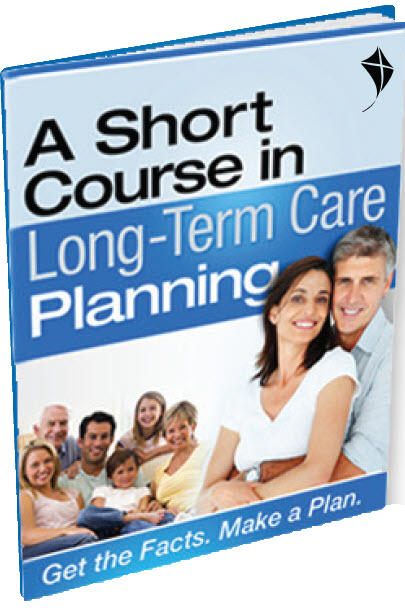Q: Why would a business owner buy long term care insurance,
when the business could buy it for them?

Yours, with our thanks for answering 2 quick LTC questions.
life insurance
Important things to remember about Life Insurance

How to review your own life insurance needs, from the National Association of Insurance Commissioners,
One through Seven
1. Choose the kind of policy that has benefits that most closely fit your needs. Ask an agent or company to help you.
2. Be sure that you can handle premium payments. Can you afford the initial premium? If the premium increases later and you still need insurance, can you still afford it?
3. Don’t sign an insurance application until you review it carefully to be sure all the answers are complete and accurate.
4. Don’t buy life insurance unless you intend to stick with your plan. It may be very costly if you quit during the early years of the policy.
5. Don’t drop one policy and buy another without a thorough study of the new policy and the one you have
now. Replacing your insurance may be costly.
6. Read your policy carefully. Ask your agent or company about anything that is not clear to you.
7. Review your life insurance program with your agent or company every few years to keep up with changes in your income and your needs.
buying Life insurance

When you buy life insurance, you want coverage that fits your needs.
First, decide how much you need—and for how long—and what you can afford to pay. Keep in mind the
major reason you buy life insurance is to cover the financial effects of unexpected or untimely death. Life
insurance also can be one of many ways you plan for the future.
Next, learn what kinds of policies will meet your needs and pick the one that best suits you.
Then, choose the combination of policy premium and benefits that emphasizes protection in case of early death,
or benefits in case of long life, or a combination of both.
It makes good sense to ask a life insurance agent or company to help you. An agent can help you review your insurance needs and give you
information about the available policies. If one kind of policy doesn’t seem to fit your needs, ask about others.
This guide provides only basic information. You can get more facts from a life insurance agent or company or from your public library.
What about the Policy you have Now?
If you are thinking about dropping a life insurance policy, here are some things you should consider:
■ If you decide to replace your policy, don’t cancel your old policy until you have received the new one. You
then have a minimum period to review your new policy and decide if it is what you wanted.
■ It may be costly to replace a policy. Much of what you paid in the early years of the policy you have now,
paid for the company’s cost of selling and issuing the policy. You may pay this type of cost again if you buy a new policy.
■ Ask your tax advisor if dropping your policy could affect your income taxes.
■ If you are older or your health has changed, premiums for the new policy will often be higher. You will not be able to buy a new policy if you are not insurable.
■ You may have valuable rights and benefits in the policy you now have that are not in the new one.
If the policy you have now no longer meets your needs,
■ you may not have to replace it. You might be able to change your policy or add to it to get the coverage or benefits you now want.
■ At least in the beginning, a policy may pay no benefits for some causes of death covered in the policy you have now. In all cases,
if you are thinking of buying a new policy
Check with the agent or company that issued you the one you have now.
When you bought your old policy, you may have seen an illustration of the benefits of your policy.
Before replacing your policy, ask your agent or company for an updated illustration. Check to see how the policy has performed and what you might expect in the future, based on the amounts the company is paying now.
What is the Right Kind of Life Insurance?
All policies are not the same. Some give coverage for your lifetime and others cover you for a specific number of years.
Some build up cash values and others do not. Some policies combine different kinds of insurance, and others let you change from one kind of insurance to another.
Some policies may offer other benefits while you are still living. Your choice should be based on your needs and what you can afford.
how much do you need?
Here are some questions to ask yourself:
■ How much of the family income do I provide? If I were to die early, how would my survivors, especially my children, get by? Does anyone else depend on me financially, such as parent, grandparent, brother or sister?
■ Do I have children for whom I’d like to set aside money to finish their education in the event of my death?
■ How will my family pay final expenses and repay debts after my death?
■ Do I have family members or organizations to whom I would like to leave money?
■ Will there be estate taxes to pay after my death?
■ How will inflation affect future needs?
As you figure out what you have to meet these needs, count the life insurance you have now, including any group insurance where you work or veteran’s insurance.
Don’t forget Social Security and pension plan survivor’s benefits.
Add other assets you have: savings, investments, real estate and personal property.
Which assets would your family sell or cash in to pay expenses after your death, or to deal with your disability?


